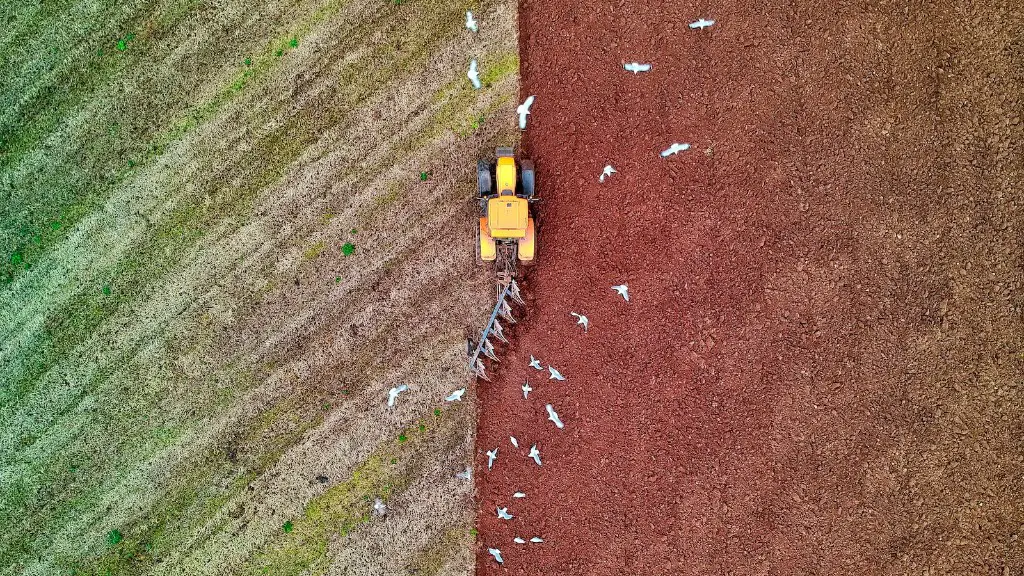Nematology is the study of plant-parasitic nematodes. Plant-parasitic nematodes are very small, unsegmented worms that feed on plants. They are a major pest of agriculture, causing billions of dollars in damage worldwide each year.
Nematology is the study of nematodes, which are a type of parasitic worm. In agriculture, nematology is used to control plant-parasitic nematodes, which can cause damage to crops. Methods of control include using resistant plant varieties, crop rotation, and applying nematicides.
What is the definition of nematology in agriculture?
Nematology is a scientific discipline that studies nematodes, or roundworms. These creatures are found in nearly every environment, and play an important role in the food chain and ecosystem.
Nematodes are a type of roundworm that can be found in both agricultural and natural ecosystems. The chairgroup Nematology studies the biology of nematodes in order to better understand and predict their behaviour and function in these ecosystems. This knowledge can then be used to improve agricultural practices and to develop new methods of pest control.
What is the importance of nematode in agriculture
Nematodes help to regulate the populations of other soil organisms and help to mineralize nutrients into plant-available forms. They also provide a food source for other soil organisms and consume disease-causing organisms. As a result, they can enhance soil quality in a number of ways.
Nematodes are small, unsegmented worms that are found in a variety of environments, including soil, water, and plant tissue. Many species of nematodes are free-living, meaning they do not require a host to survive. These free-living nematodes feed on bacteria, fungi, protozoans, and even other nematodes, and play an important role in nutrient cycling and release of nutrients for plant growth. Other nematodes are parasitic, meaning they require a host to survive. These parasitic nematodes attack insects, and help to control insect pests.
Are nematodes good or bad for agriculture?
Nematodes are small, cylindrical worms that are found in soil, water, and on plants. Most nematode species are beneficial, helping to aerate and improve soil health. However, a few species are pests that damage plant roots. Beneficial nematodes help to control these pests by attacking and killing them. This helps to improve the overall health of the soil.
Nematodes are small, multicellular creatures that are often referred to as roundworms. They are not closely related to true worms, however, and are actually more closely related to insects. Nematodes have smooth, unsegmented bodies and are very small – so small, in fact, that you need a microscope to see them. Some species of nematode feed on plants, and these are the ones that are most likely to cause damage to crops.
What do nematodes do in your yard?
Nematodes are small, unsegmented worms that can be found in nearly every habitat on Earth. Many species of nematodes are beneficial to humans, however, some species can cause damage to plants and crops. Nematodes injure lawns by feeding on plant root cells with their needle-like mouthparts (stylets). As a result, the root system becomes damaged to where the lawn cannot properly absorb water and nutrients. Then the lawn becomes thin and weak, making it much more susceptible to other stresses, such as drought.
Beneficial nematodes are a type of microscopic worm that is used as a form of biological control for pests in home lawns. These nematodes help to control common lawn pests, such as grubs, sod webworms, fleas, ticks, and thrips, among others. Other types of nematodes that are considered to be “good” eat various types of microorganisms, such as fungi and bacteria.
Can nematodes enter the human body
Nematode infections are among the most common infections in humans, with a wide variety of species causing a variety of different diseases. The most common nematode infections include ascariasis (roundworm), trichuriasis (whipworm), hookworm, enterobiasis (pinworm), strongyloidiasis, filariasis, trichinosis, dirofilariasis (heartworm), and angiostrongyliasis (rat lungworm disease).
Nematodes are parasitic worms that live in the soil. They contain bacteria, but these bacteria cannot live independently and they cannot infect humans. Nematodes are also safe for animals and plants. Human-parasitizing nematodes are not used for insect-control.
What are the 5 most common parasitic nematodes?
These are just a few of the nematodes that commonly parasitize humans. Others include ascarids (Ascaris), filarias, hookworms, and pinworms (Enterobius). The species Trichinella spiralis, commonly known as the ‘trichina worm’, is responsible for the disease trichinosis. This worm occurs in rats, pigs, bears, and humans.
Nematodes are small, worm-like creatures that can cause a lot of damage to plants. Most nematodes are harmless, but a handful of troublesome species can attack the outside surfaces of plants, burrowing into the plant tissue and causing root, stem, folar and even flower damage. Other nematodes live inside the plants for part of their lives, causing damage from the inside out.
What kills nematodes in soil
Solarization is a process of applying intense solar heat to soil to kill pests and diseases. This process can be used to kill nematodes in soil.
If you eat raw or undercooked fish or squid that is infected with nematode larvae, the larvae can enter your gastrointestinal tract. Once inside your body, the larvae can invade your esophagus, stomach, or intestine. The parasite eventually dies and produces an inflamed mass in the area that it has invaded.
Are nematodes bad for soil?
Plant-parasitic soil nematodes are dangerous pests that can damage plant roots and cause farmers to lose a lot of money due to unsellable crops. Thus, it is important to find effective ways to manage plant-parasitic nematodes. Some common management strategies include using nematicides, rotating crops, and growing cover crops.
Planting these crops during cooler months can help to avoid any damage from root-knot nematode.
Warp Up
Nematology is the study of nematodes, which are eukaryotic, cylindrical, unsegmented worms that often live in soil. They can be beneficial to agriculture by helping to aerate and loosen soils, but some species are plant-parasitic and can causecrop damage.
In conclusion, nematology is the study of plant-parasitic nematodes and their impact on agriculture. It is an important field of study because nematodes can cause serious damage to crops, and their management is essential to successful agriculture.





